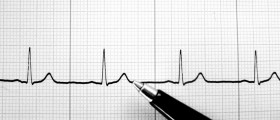Potassium deficiency is a serious condition. It may affect people of all ages. Medical term for potassium deficiency and a low level of potassium in blood is called hypokalemia. The root cause of potassium deficiency and low level of potassium may vary a lot. Major problem associated with potassium deficiency is connected to heart function and there are also problems with muscles.
Symptoms of Potassium Deficiency in Elderly
Potassium deficiency in elderly (as well as in other age groups) typically leads to fatigue, muscle weakness and muscle cramps, skin rashes or acne, nervous disorders, insomnia, slow and erratic heartbeat, depression, erratic mood changes, cardiac arrhythmia, higher blood sugar and bone fragility.
What Causes Potassium Deficiency in Elderly?
Elderly patients tend to suffer from many illnesses. Hypertension and heart conditions are only some of them. Diuretics are commonly prescribed medications in elderly patients. These drugs may cause excessive loss of potassium and lead to potassium deficiency and subsequent complications. So, the main cause of potassium deficiency in elderly patients is uncontrollable intake of diuretics. Hypokalemia is generally caused by furosemid and thiazide diuretics.
- Total of 36,361 patients aged above 65 years were screened retrospectively.
- Group 1 consisted of 269 elderly patients with potassium level ?3.5 mmol/L, and group 2 (control group) consisted of 182 subjects with potassium level between 3.6 and 5.5 mmol/L.
- Prevalence of hypokalemia was found 3.24% in patients aged above 65 years. Duration of hospital stay, presence of ?2 comorbid diseases, hospital cost, and MR were significantly higher in group 1 compared to group 2.
- Loop diuretics, hydrochlorothiazides, beta agonists, inadequate oral intake, and female gender were all independent risk factors for CAH in elderly patients. Patients with ?2 comorbid diseases were found to have greater risk of hypokalemia than the patients with
One more cause of hypokalemia in elderly is prolonged diarrhea and excessive vomiting. These two generally occur due to infections of gastrointestinal tract. Both of the mentioned cause serious dehydration, hyponatremia and hypokalemia. If not corrected on time there may be serious complications. Apart from being caused by infection diarrhea also occurs due to abuse of laxative, medications that are frequently used by elderly patients.
Diagnosing Potassium Deficiency in Elderly
A well experienced doctor may assume the patient is suffering from hypokalemia in case he/ she takes certain medications and thanks to several more data obtained from the patient's medical history. The condition is easily confirmed by a simple blood test.
Treatment for Potassium Deficiency in Elderly
In case of severe potassium deficiency there may be arrhythmia. These patients require intravenous administration of potassium as well as constant monitoring of vital and cardiac parameters. In mild forms of potassium deficiency potassium can be taken orally and if the level is only slightly reduced it can be easily corrected with the proper diet.
It is essential for all elderly patients who are on prolonged therapy with diuretics to control the level of potassium on regular bases. Only this way potential and sometimes life-threatening complications can be easily prevented and the level of potassium can be kept in a normal range. It is also necessary for elderly people who vomit a lot or have persistent diarrhea to consult a doctor so that potential hypokalemia may be diagnosed on time.


















Your thoughts on this
Loading...